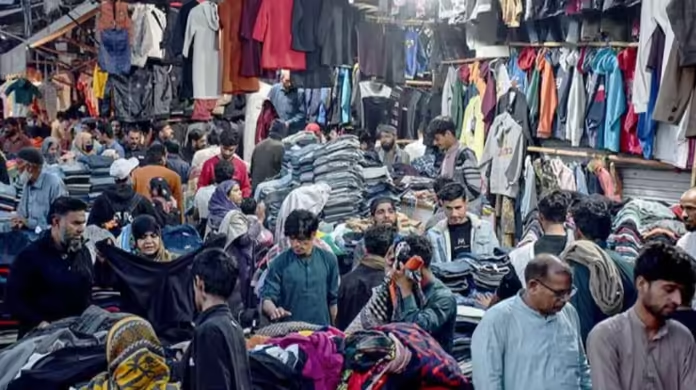A Harsh Winter Awaits the Poor as Used Clothing Prices Skyrocket in Landa Market
As winter’s chill starts to spread across Pakistan, its weakest citizens are hit with an unexpected punch — steep rising prices of used clothing in Landa Market. The government’s latest move to impose a Rs. 200 per kilogram duty on imported second-hand clothes has enraged traders and caused sleepless nights among poor families who trust Landa Bazaars to provide them with cheap winter clothing.
Traders nationwide have protested vigorously against the policy, saying that it would ruin small businesses and distressed households. Based on market reports, the new tax has increased prices of warm clothing by Rs. 500 to Rs. 1,500, rendering even the most basic winter clothing beyond the reach of the majority.
“We Were Already Struggling — Now It’s Worse,” Say Traders
At Lahore’s popular Landa Bazaar, which was famous for its cheap winter inventory, the heat is being felt by the stallowners. According to traders, the new tariff has pushed import prices to record highs, with the owners having no option but to transfer the burden to customers.
Even without this tax, our prices were higher this year because of international shipping and exchange rates,” averred a trader. “But we were still attempting to keep jackets and sweaters accessible to the public. Now with this new Rs. 200/kg duty, it’s out of the question. The poor can’t afford warm clothing anymore.
The cost per container has also skyrocketed, according to importers, with numerous smaller companies not being able to maintain operations under the added expense. Even some of the traders have slowed down new shipments for fear that falling demand may get them stuck with inventory in the crucial winter months.
Temporary Shelter: Homeless Families Struggle to Stay Warm Amid Soaring Prices
The working class is being hit the hardest — daily wage workers, rickshaw pullers, and street vendors who rely on second-hand clothing markets for affordable prices. Families that could earlier purchase warm coats or sweaters for a few hundred rupees are now being confronted with prices that run alongside new clothing shops.
I used to purchase my children’s winter garments from Landa Bazaar annually,” said a customer in Karachi. “But this time prices are doubled. How can we cope when food, fuel, and electricity are already so costly?”
A Call for Reconsideration
Business leaders and economic experts are calling on the government to reconsider the decision. They say that although generating more revenues is essential, it must not be at the cost of people’s essential requirements — particularly with winter months ahead and with inflation already in their faces.
“Used clothes are not a luxury, but a necessity for millions,” a trader’s association representative said. “The tax may appear minor in black and white, but it is titanic in its impact on common families. We appeal to the government to provide relief or cut the duty forthwith.”
It also warns that the policy may inadvertently promote the black market, as importers find means to circumvent official routes so that they do not have to pay the hefty price of legal imports.
Balancing Revenue and Relief
The used clothing tax in Pakistan has ignited a fiery argument on fairness, affordability, and economic priorities. As temperatures fall, the government is increasingly under pressure to reconcile fiscal objectives with empathy towards struggling citizens.
For the moment, both consumers and traders are left waiting nervously for a cold, costly winter — one that promises to leave the nation’s poorest not only out in the cold, but without the ability to warm themselves at all.
Stay connected with Pakistan Updates for additional news, analysis, and updates from throughout the country.




